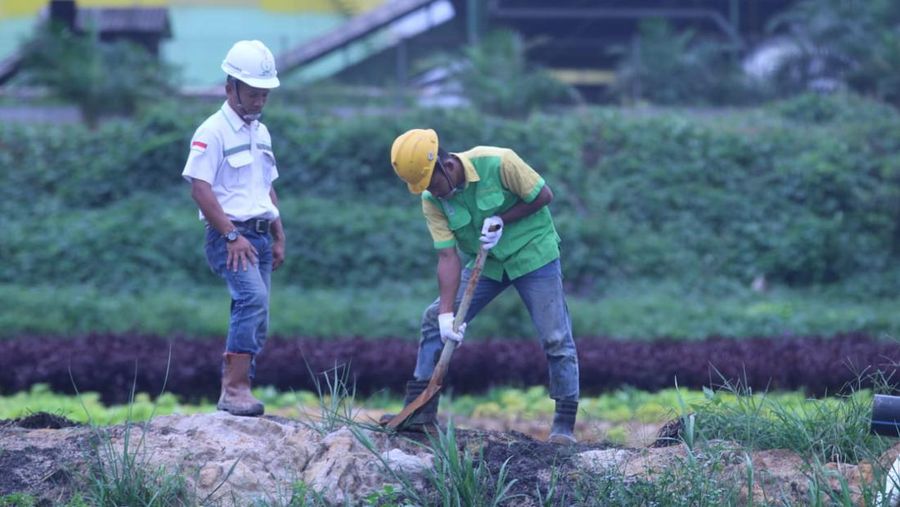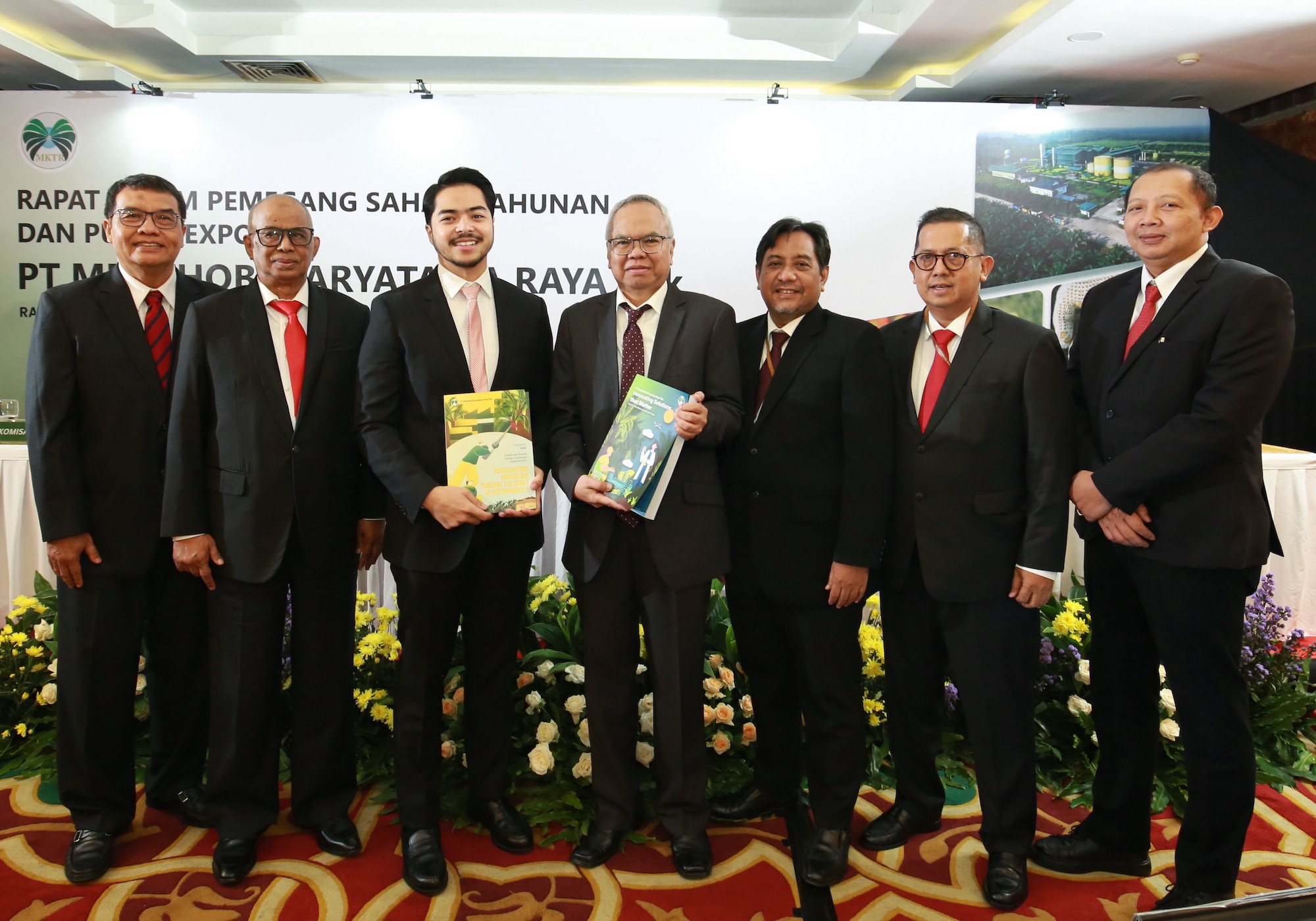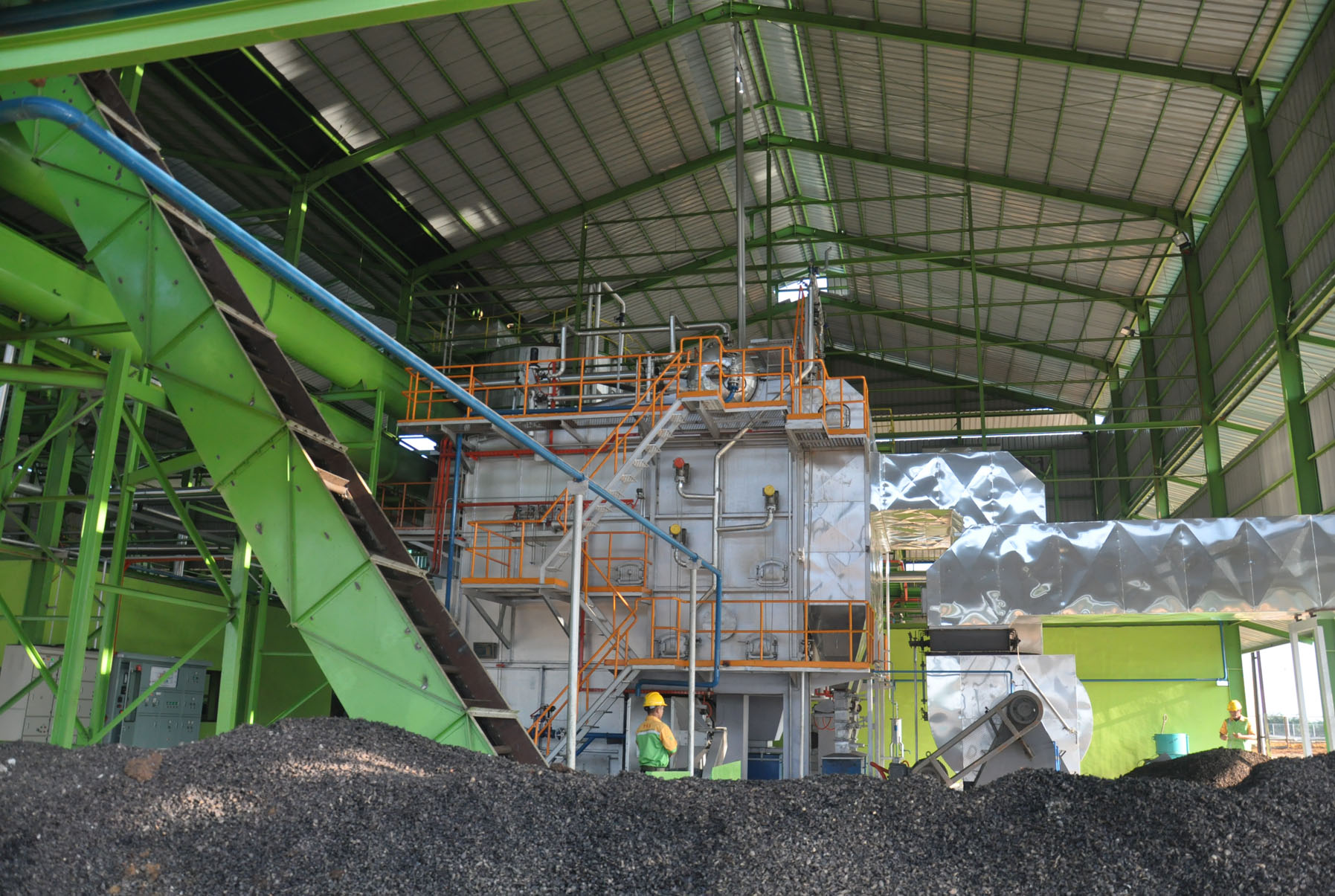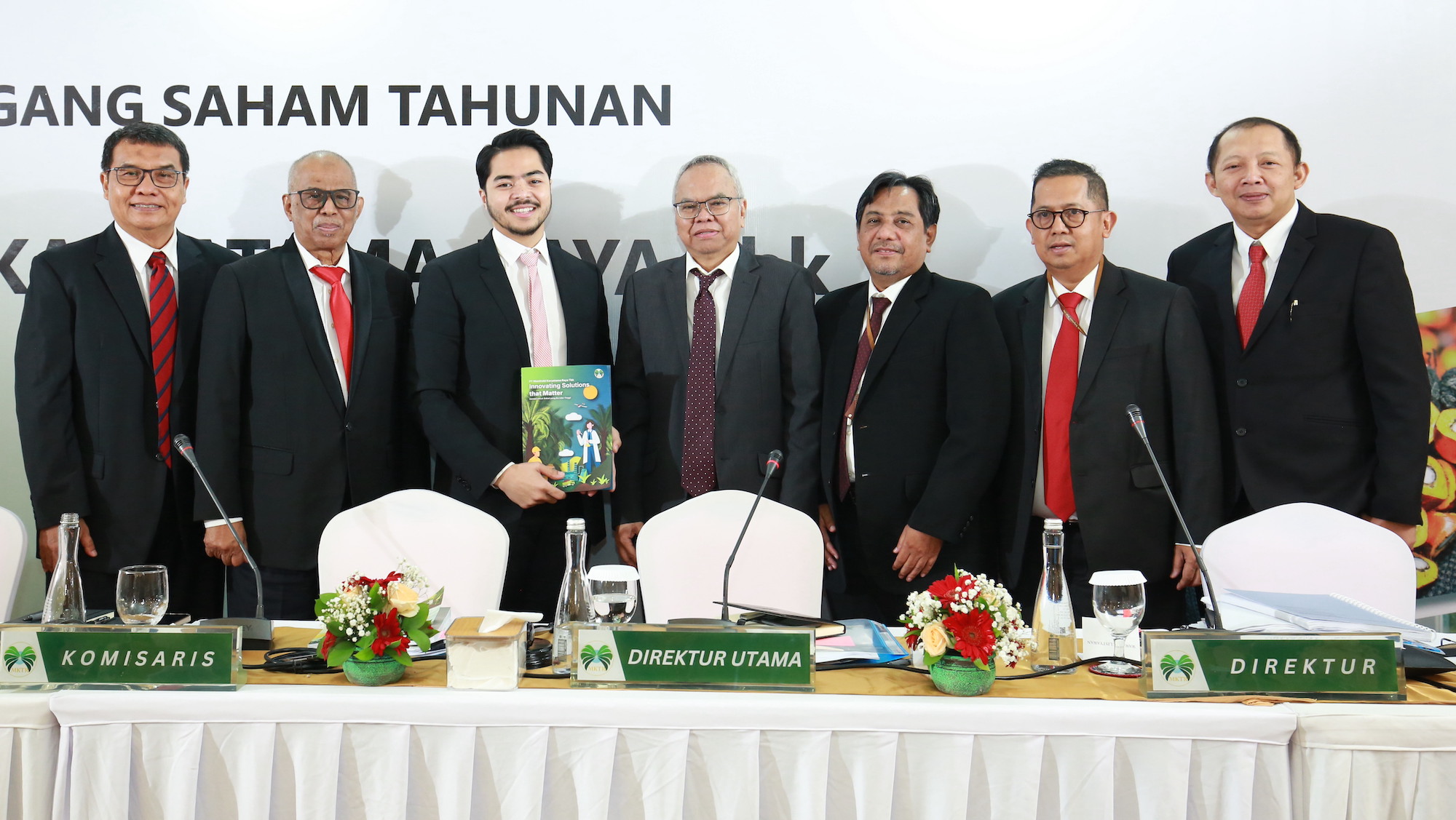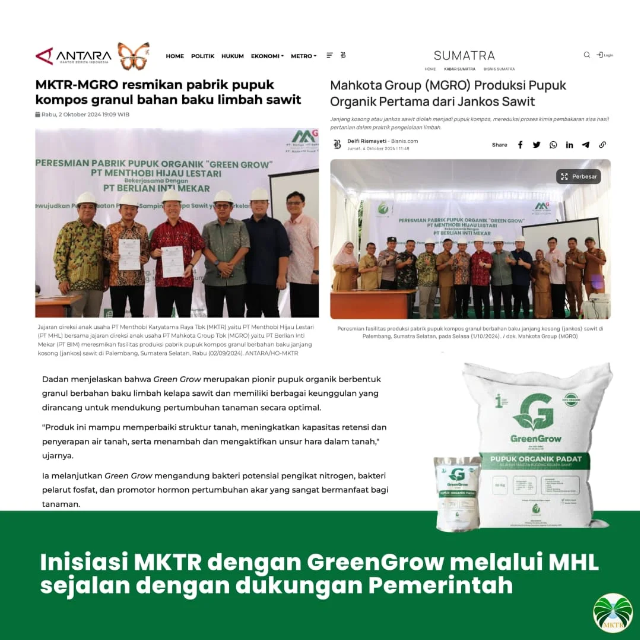
24
Apr
Capturing the Huge Potential for Sustainability from Palm Oil By-Products
Indonesia's Strategy for Sustainable Palm Oil Waste Management
As the world’s largest producer of palm oil, Indonesia is facing a significant challenge in balancing economic growth with environmental sustainability. One of the strategies currently being developed by the government is to utilize palm oil by-products (waste) to create added value, reduce environmental burden, and generate new economic opportunities.
PT Menthobi Karyatama Raya Tbk (MKTR) is one of the leading companies in processing palm oil industry by-products, carried out through its subsidiary, PT Menthobi Hijau Lestari (MHL).
MHL, the brand owner of GreenGrow, utilizes palm oil industry waste—such as empty fruit bunches (EFB)—to produce granular and liquid organic fertilizers. Through GreenGrow and its related services, MHL not only supports sustainability but also plays a crucial role in creating eco-friendly solutions for the agriculture and renewable energy sectors.
MHL: A Pioneer in Turning Empty Fruit Bunches into Granular Organic Fertilizer
PT Menthobi Hijau Lestari (MHL) has adopted an innovative approach in processing palm oil waste, particularly empty fruit bunches (EFB). MHL transforms EFB into both solid and liquid organic fertilizers under the GreenGrow brand. GreenGrow is a pioneering product in the market for its granular organic fertilizer made from palm oil industry waste materials.
By converting EFB, which was once considered waste, into a high-value product, MHL not only reduces environmental impact but also provides eco-friendly agricultural solutions. This organic fertilizer helps improve soil fertility and plant productivity, making GreenGrow one of the leading products supporting sustainable agricultural practices in Indonesia.
Additionally, MHL offers consulting services in renewable energy and industrial waste processing, and is involved in the biofuel trade. With its range of innovative solutions, MHL and GreenGrow play a key role in the transformation of the palm oil industry toward greater environmental responsibility and sustainability.
The Potential of Palm Oil Waste as a Renewable Energy Source
In the palm oil industry, waste is often viewed as a problem to be solved. However, with the right approach, this waste can become a highly valuable resource.
According to InfoSAWIT, during an international conference, Coordinating Minister for Economic Affairs Airlangga Hartarto stated that palm oil waste such as EFB, tree trunks, wastewater, and particularly palm kernel shells, holds significant potential as a renewable energy source.
Among these, palm kernel shells stand out. This type of waste has an energy content comparable to low-grade coal. With Indonesia producing around 13.4 million tons of palm kernel shells annually, the country has a major opportunity to reduce dependence on fossil fuels and transition to more environmentally friendly energy sources.
This potential is already being utilized as boiler fuel in palm oil mills and is being explored for co-firing with coal in power plants.
Used Cooking Oil (UCO) as Aviation Fuel
In addition to palm kernel shells, used cooking oil (UCO) has also emerged as a high-value waste product. In 2023, Indonesia produced 3.9 million tons of used cooking oil, which is now being processed into sustainable aviation fuel (SAF). This step not only helps reduce domestic waste but also strengthens Indonesia's position in the global green energy market.
The government is even considering utilizing palm waste-based raw materials for the Carbon Offsetting and Reduction Scheme for International Aviation (CORSIA) to meet international aviation fuel requirements. This breakthrough has the potential to make a significant impact in creating a greener air transport sector.
Economic Benefits for Rural Communities
Beyond its environmental advantages, the utilization of palm oil waste also presents economic opportunities, especially in rural areas. Investment in this practice could create new job opportunities and increase incomes for smallholder farmers and communities surrounding palm oil plantations.
Waste that was once seen as useless is now becoming a valuable resource that supports local economies.
Indonesia's Strategy for Sustainable Palm Oil Waste Management
As the world’s largest producer of palm oil, Indonesia is facing a significant challenge in balancing economic growth with environmental sustainability. One of the strategies currently being developed by the government is to utilize palm oil by-products (waste) to create added value, reduce environmental burden, and generate new economic opportunities.
PT Menthobi Karyatama Raya Tbk (MKTR) is one of the leading companies in processing palm oil industry by-products, carried out through its subsidiary, PT Menthobi Hijau Lestari (MHL).
MHL, the brand owner of GreenGrow, utilizes palm oil industry waste—such as empty fruit bunches (EFB)—to produce granular and liquid organic fertilizers. Through GreenGrow and its related services, MHL not only supports sustainability but also plays a crucial role in creating eco-friendly solutions for the agriculture and renewable energy sectors.
MHL: A Pioneer in Turning Empty Fruit Bunches into Granular Organic Fertilizer
PT Menthobi Hijau Lestari (MHL) has adopted an innovative approach in processing palm oil waste, particularly empty fruit bunches (EFB). MHL transforms EFB into both solid and liquid organic fertilizers under the GreenGrow brand. GreenGrow is a pioneering product in the market for its granular organic fertilizer made from palm oil industry waste materials.
By converting EFB, which was once considered waste, into a high-value product, MHL not only reduces environmental impact but also provides eco-friendly agricultural solutions. This organic fertilizer helps improve soil fertility and plant productivity, making GreenGrow one of the leading products supporting sustainable agricultural practices in Indonesia.
Additionally, MHL offers consulting services in renewable energy and industrial waste processing, and is involved in the biofuel trade. With its range of innovative solutions, MHL and GreenGrow play a key role in the transformation of the palm oil industry toward greater environmental responsibility and sustainability.
The Potential of Palm Oil Waste as a Renewable Energy Source
In the palm oil industry, waste is often viewed as a problem to be solved. However, with the right approach, this waste can become a highly valuable resource.
According to InfoSAWIT, during an international conference, Coordinating Minister for Economic Affairs Airlangga Hartarto stated that palm oil waste such as EFB, tree trunks, wastewater, and particularly palm kernel shells, holds significant potential as a renewable energy source.
Among these, palm kernel shells stand out. This type of waste has an energy content comparable to low-grade coal. With Indonesia producing around 13.4 million tons of palm kernel shells annually, the country has a major opportunity to reduce dependence on fossil fuels and transition to more environmentally friendly energy sources.
This potential is already being utilized as boiler fuel in palm oil mills and is being explored for co-firing with coal in power plants.
Used Cooking Oil (UCO) as Aviation Fuel
In addition to palm kernel shells, used cooking oil (UCO) has also emerged as a high-value waste product. In 2023, Indonesia produced 3.9 million tons of used cooking oil, which is now being processed into sustainable aviation fuel (SAF). This step not only helps reduce domestic waste but also strengthens Indonesia's position in the global green energy market.
The government is even considering utilizing palm waste-based raw materials for the Carbon Offsetting and Reduction Scheme for International Aviation (CORSIA) to meet international aviation fuel requirements. This breakthrough has the potential to make a significant impact in creating a greener air transport sector.
Economic Benefits for Rural Communities
Beyond its environmental advantages, the utilization of palm oil waste also presents economic opportunities, especially in rural areas. Investment in this practice could create new job opportunities and increase incomes for smallholder farmers and communities surrounding palm oil plantations.
Waste that was once seen as useless is now becoming a valuable resource that supports local economies.
The Importance of Policy and Cross-Sector Collaboration
To fully realize these potentials, Minister Airlangga Hartarto emphasized the need for strong policy support. The Indonesian government must encourage greater investment in research and innovation to develop technologies that support palm waste utilization.
Furthermore, collaboration among the government, private sector, and academia is essential to ensure that these sustainable practices continue to grow and deliver greater benefits for both the economy and the environment.
For more information about our products and services, contact us for a free consultation [here].
To fully realize these potentials, Minister Airlangga Hartarto emphasized the need for strong policy support. The Indonesian government must encourage greater investment in research and innovation to develop technologies that support palm waste utilization.
Furthermore, collaboration among the government, private sector, and academia is essential to ensure that these sustainable practices continue to grow and deliver greater benefits for both the economy and the environment.
For more information about our products and services, contact us for a free consultation [here].
Source : https://www.antaranews.com/

